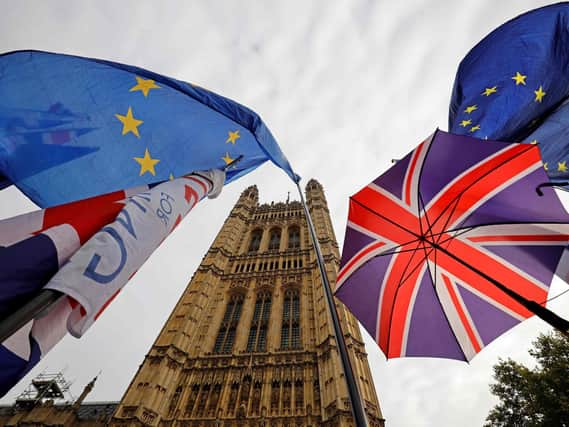Ignore the Brexit extremes: the UK will be OK - David Coombs


Since the results of the Brexit referendum in 2016 there have been many predictions on all sides as to what exiting the European Union will mean for the future of the UK.
An utopian landscape of free trade and burgeoning businesses “unburdened” by red tape was expected on one side, and economic Armageddon predicted on the other.
Advertisement
Hide AdAdvertisement
Hide AdAll of these predictions were made through the prism of people’s politics on either side of the debate. This resulted in rather uninformed comments being thrown around the media and at the electorate.


In the end it seems we all just wanted to get it over with.
On a recent trip to the US, I found it refreshing to be away from the constant grind of news about Brexit, but also to hear the views of companies there. I was struck by how important the UK is in its own right.
It was perhaps most interesting of all to hear their perceptions of the differences between the US and Europe. In the US, they see the politicians setting the rules and the regulators following them, yet in Europe they believe the process is normally the opposite, with regulators laying down the law.
A Brexiteer would likely agree with the US perception. They would argue that European Union (EU) regulations were overly protectionist and disruptive to business, while Remainers would say labour laws are crucial in order to protect worker rights and free movement imperative to keep the public services running. From the US perspective, however, where they don’t have an NHS or the safety net of welfare, they appear to see it through the lens of the former.
The EU has always tended to fall behind the domestic and Chinese markets when US businesses made capital allocation decisions due to the perceived relative growth opportunities and ease of doing business.
Interestingly, the newly independent UK seems to be coming in ahead of the EU at three for many.
Some are being far too pessimistic
The reason for this is that the UK is a very large consumer market of some 65 million people – we tend to forget just how attractive a market of our size can be. It is a consumer-driven economy, with one rule of law and a very reliable legal system, as well as industry specialisms such as the financial expertise present in the City of London.
Advertisement
Hide AdAdvertisement
Hide AdWe may not be the chosen home to build mega factories – however, I doubt that was going to happen inside the EU anyway – but the future may not be quite as bleak as some have predicted.
Creating trade imbalances when the world economy is looking fragile is in no country’s interests, and I suspect the more difficult may be left on the shelf gathering dust for years.
I believe some are being far too pessimistic about our chances as a country once the transition period is over. That is not to say it will definitely be better outside the EU, but it may not be as bad as many seem to expect.
The world has suspended investment into UK assets for nearly four years now, and even if just some decide to filter back then there will a lot of potential investors coming back to the market.
The first wave – outside of direct investment into building factories and industrial parks – will likely see money flood back into the FTSE 100 Index, which is a favoured market for international investors looking for passive exposure to the UK.
Once the money has flowed indiscriminately into the FTSE indices, it is likely the second wave of investors will look to more domestic stocks which might benefit financials, such as the banks and life companies, as well as consumer related stocks related to industries such as leisure or home improvements.
Areas to avoid include sectors such as commercial property and retail stocks. Being selective will be crucial. We are already seeing cases of companies “blaming” Brexit for their woes, such as retail stocks, when in actual fact there are bigger underlying issues at play – for example, the challenges of e-commerce or changes in consumer behaviour driven by environmental, social and governance (ESG) factors.
The feedback from overseas investors suggests we should be feeling rather more positive about the prospects for the UK economy in the coming years.
Advertisement
Hide AdAdvertisement
Hide AdAs for the portfolios we manage, we increased our holdings in the UK for the first time in five years in December, and recently upped the amount we have invested in the FTSE 250 Index. It may require a longer-term outlook, but the UK’s future could well be bright following the impact of Covid-19 – and pessimists should ask themselves if they can afford to miss out.
- David Coombs, head of multi-asset investments at Rathbones